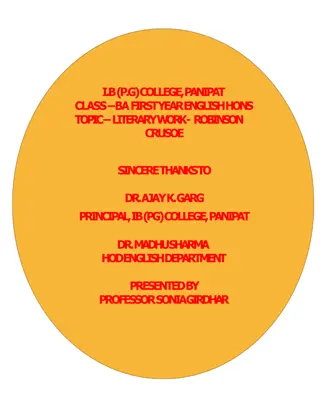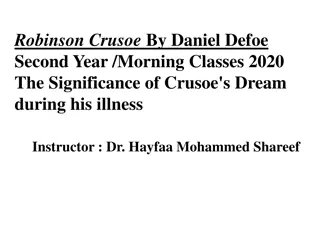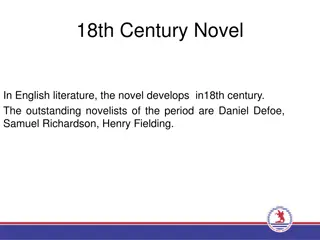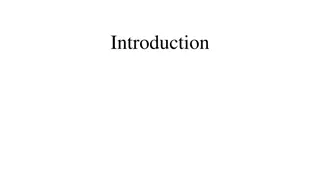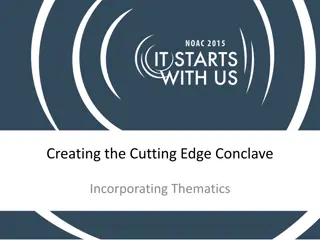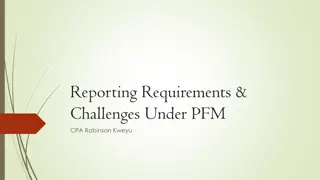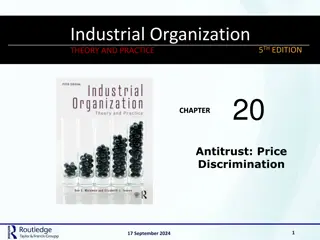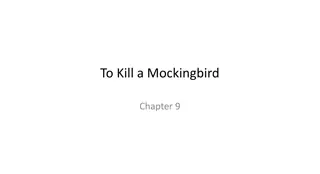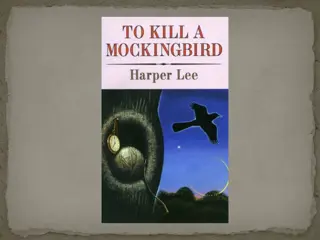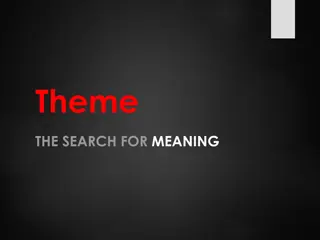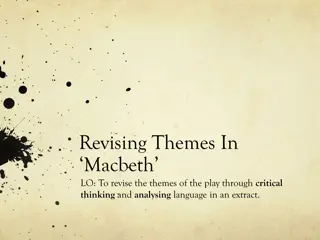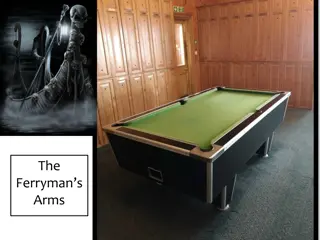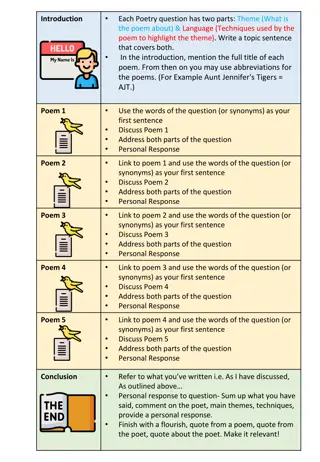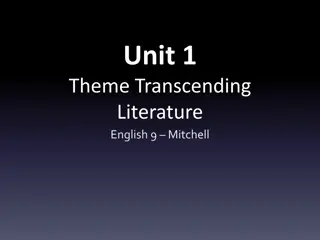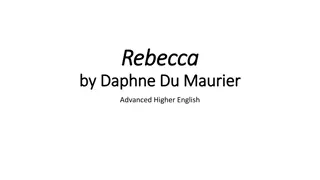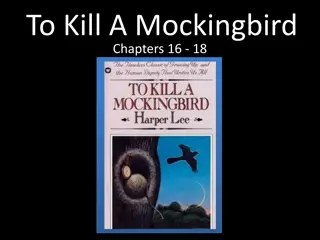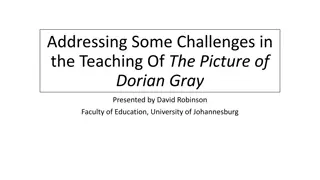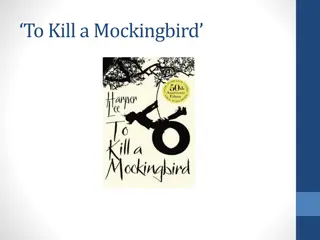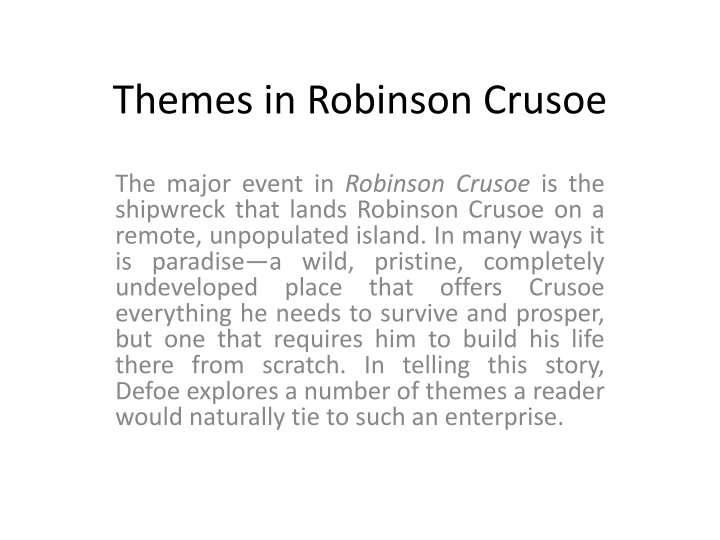
Themes in Robinson Crusoe
Explore the major themes in Robinson Crusoe, including self-reliance, civilization, progress, and the role of nature. Discover how these themes shape the story of survival and adventure on a remote island.
Download Presentation

Please find below an Image/Link to download the presentation.
The content on the website is provided AS IS for your information and personal use only. It may not be sold, licensed, or shared on other websites without obtaining consent from the author. Download presentation by click this link. If you encounter any issues during the download, it is possible that the publisher has removed the file from their server.
E N D
Presentation Transcript
Themes in Robinson Crusoe The major event in Robinson Crusoe is the shipwreck that lands Robinson Crusoe on a remote, unpopulated island. In many ways it is paradise a wild, pristine, completely undeveloped place everything he needs to survive and prosper, but one that requires him to build his life there from scratch. In telling this story, Defoe explores a number of themes a reader would naturally tie to such an enterprise. that offers Crusoe
Self-Reliance Robinson Crusoe is at its core a story of adventure, and true to its nature the hero must rely upon his wits and courage to survive. Throughout the novel readers see this theme in action. Robinson Crusoe chooses the right moment to escape from his slave master and thinks quickly to push the Moor accompanying him on the boat overboard. He demonstrates self-reliance in building his plantation in Brazil. And most clearly and indefatigably, he uses his self- reliance to survive on the island. Defoe goes to extraordinary lengths to tell how Crusoe sorts through the goods on the wrecked ship to find just what he needs to survive and how he builds his rafts to bring it all ashore. It describes how he builds his castle for both comfort and defense. Crusoe has few materials available to him, but he manages to use what he does have in creative ways to build a comfortable and safe home on the island.
Civilization A system of rules and order governs Crusoe's life, even when he is isolated from organized and civil society. Importantly, his concept of civilization is based on his experience with European culture and civilization, so he does not recognize that the natives he encounters have civilizations of their own. As a result, he insists that Friday give up his cannibal ways, wear clothing, and learn to speak English. Readers are never given a hint that Crusoe makes any effort to learn Friday's language. And remarkably, it seems Crusoe himself never adopts any of the cultural habits of the natives with which he interacts. Yet the Spaniards who were cast ashore on Trinidad, and thus at the mercy of the natives, do learn to speak their language. Friday and the other natives have lived and thrived in the environment that Crusoe has been cast into for untold thousands of years, and yet he does not adopt any technique that they use that might be useful for him. It could be noted, however, that Crusoe does at least acknowledge that, although the natives are cannibals, he finally recognizes that it is ingrained in their culture and that they do not see it as a sin.
Progress During his time on the island, Crusoe moves from pure survival in the wild to hunting and farming, which raises him to a kind of relative prosperity. He makes his own tools and furniture, domesticates animals, plants crops, and eventually even establishes a small colony on his island as he gathers about him various groups of castaways and natives. The kind of progress and mobility he is able to achieve was rare in the England of his day
Nature In Robinson Crusoe, nature is one of the chief actors in guiding the plot. It is nature that blows Crusoe's ship onto the sand near the island and that casts Crusoe alone of all the men on that ship onto the shores of the island. It is nature that provides calm seas so Crusoe can salvage all the tools, food, and other supplies from the wrecked ship. It is nature that wrecks the Spaniard's ship, and later on that sends the wolves and bear to attack Crusoe's party as they journey to England. It is also nature that provides all the plenty that Crusoe enjoys on the island, from the goats that nourish him to the parrot that keeps him company to the seeds that grow and become the source of much of his food during his years on the island. Crusoe learns during the novel that nature can provide bounty if cultivated or destruction, if not treated with caution. Crusoe discovers that even his most diligent work cannot overcome some of the forces of nature, which he comes to believe strongly over the course of his time on the island is God's hand at work.

